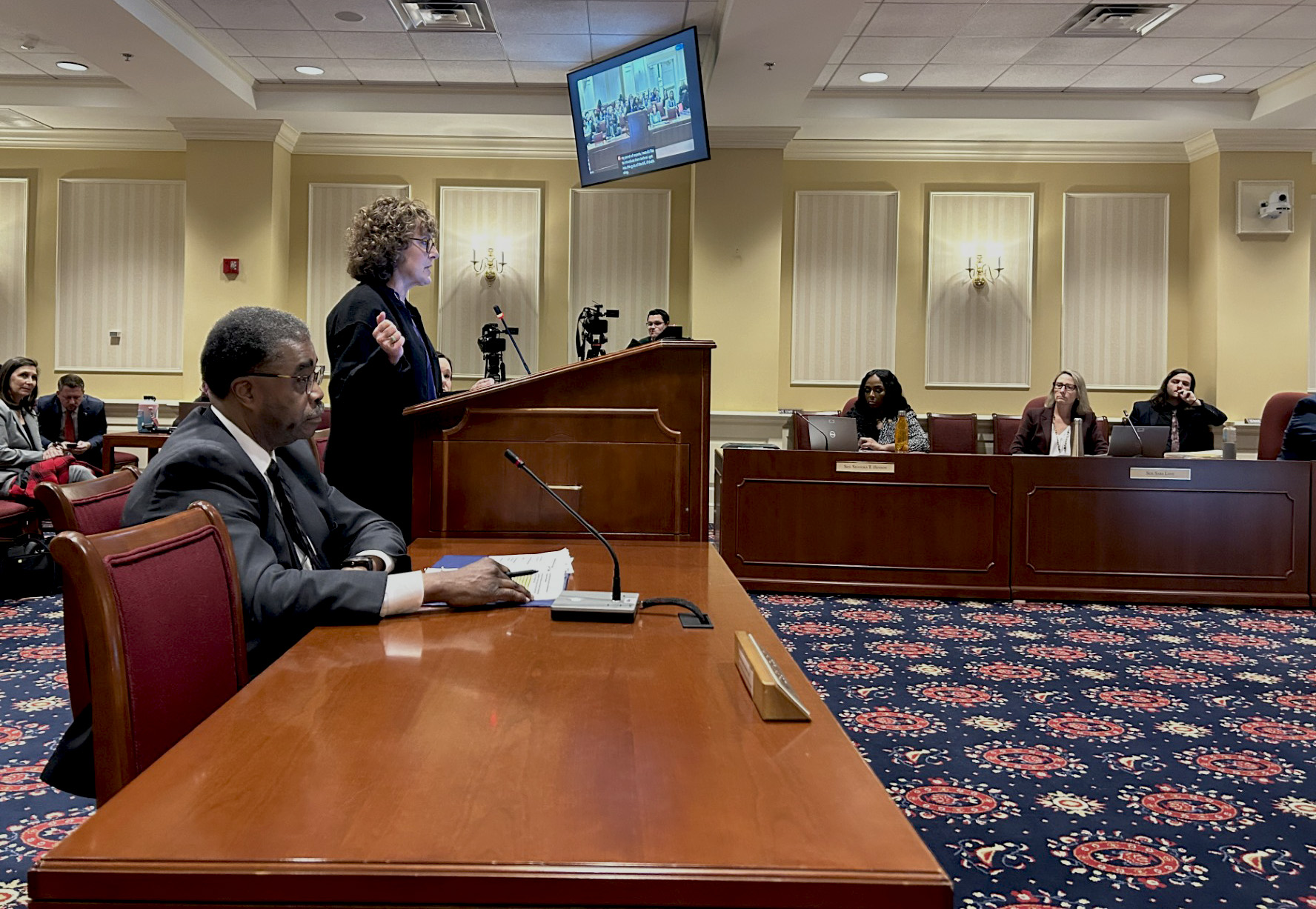ANNAPOLIS–Maryland lawmakers are divided on whether to clear the path for elderly and seriously ill inmates to more easily seek early release from prison.
Those backing a set of proposed reforms argue that the state incarcerates some people who are too old or sick to commit new crimes.
“We are talking about people who are very, very ill, who do not and cannot physically hurt anyone,” said Sen. Shelly Hettleman, D-Baltimore County. “I don’t think it is in the interest of justice to make them spend their final days behind bars.”
But some conservatives are pushing back against that idea of justice.
“That’s why we have life in prison,” said Sen. William Folden, a Republican representing Frederick County. “They’re supposed to die in prison.”
Maryland’s Parole Commission, which backs the idea of reform, has rarely approved medical parole requests for at least the past decade. The programs are intended for inmates older than 60 or with serious illnesses, but many who are theoretically eligible are turned away, according to the Maryland Parole Commission and the state’s Office of the Public Defender.
Advocates say that’s at least partly because state law sets stricter eligibility rules than lawmakers likely intended when they created the programs.
Under current state law, “you can only be considered for geriatric parole if you’ve been convicted of multiple violent offenses,” said Lila Meadows, an assistant public defender and clinical faculty member at the University of Maryland’s Francis King Carey School of Law. “That wouldn’t have been the [General Assembly’s] intent.”
To be eligible for medical parole, current law requires that a person must either have a terminal illness or have a health condition that makes their continued incarceration “serve no useful purpose.”
A bill sponsored by Hettleman would require the state’s parole commission to hold in-person hearings on parole requests from inmates with serious terminal or chronic illnesses, including conditions like dementia. Advocates say this would let them make a case that they no longer pose a safety threat to others.
The proposal would also provide parole hearings every two years to inmates over the age of 60 and who have served more than 15 years of their sentence. It would not cover inmates sentenced to life in prison without possibility of parole, nor those on the sex offender registry.
Hettleman’s proposal to reform the programs has failed in the Senate Judicial Proceedings Committee in past years. This year, committee chair Sen. William Smith, a Democrat representing Montgomery County, says it may have momentum, pending some technical adjustments.
According to Hettleman, more than 400 people currently in state custody would meet the criteria for geriatric or medical parole.
Meadows says the continued incarceration of those clients serves no benefit to Maryland residents.
“I have represented clients who are confined to wheelchairs, [cannot] feed themselves, who are wearing diapers, waiting hours for someone to come by the infirmary to change them, developing bed sores, who have been refused from parole because the standards are unclear, despite the fact that their condition will not reverse,” said Meadows.
Instead, Meadows argues, releasing older and seriously ill inmates might save money on prison healthcare expenses and free up corrections officers.
“It’s also really costly from a personnel standpoint at a time when a lot of institutions, frankly, can’t afford to be further short-staffed,” Meadows told Capital News Service.
But skeptics take issue with the eligibility limits for geriatric parole consideration listed in the current bill — specifically, a minimum age of 60 and a minimum of 15 years served in prison.
Sen. Chris West, R-Baltimore and Carroll Counties, says the program should require additional time served on a prison sentence before an older inmate can be considered for parole based on their age.
“Consulting my conscience, my thought was [that] someone who commits a particularly egregious crime ought to be in jail for at least 20 years before we consider releasing them,” he said.
Folden argues that expanding opportunities for older inmates to seek parole would undermine the purposes of lengthy sentences given to those convicted of serious crimes, and that reducing the state’s spending on prison healthcare is no justification for the reform.
“If that’s how they’re trying to save money, by re-victimizing victims and setting loose those that are the most have committed the most egregious crimes upon our communities, shame on the state legislators,” Folden said.
Maryland’s Department of Public Safety and Correctional Services did not weigh in on the proposal during a Judicial Proceedings Committee hearing this week, but a spokesperson confirmed the agency’s support for the bill in an email to CNS.
For now, the proposal remains in limbo.

